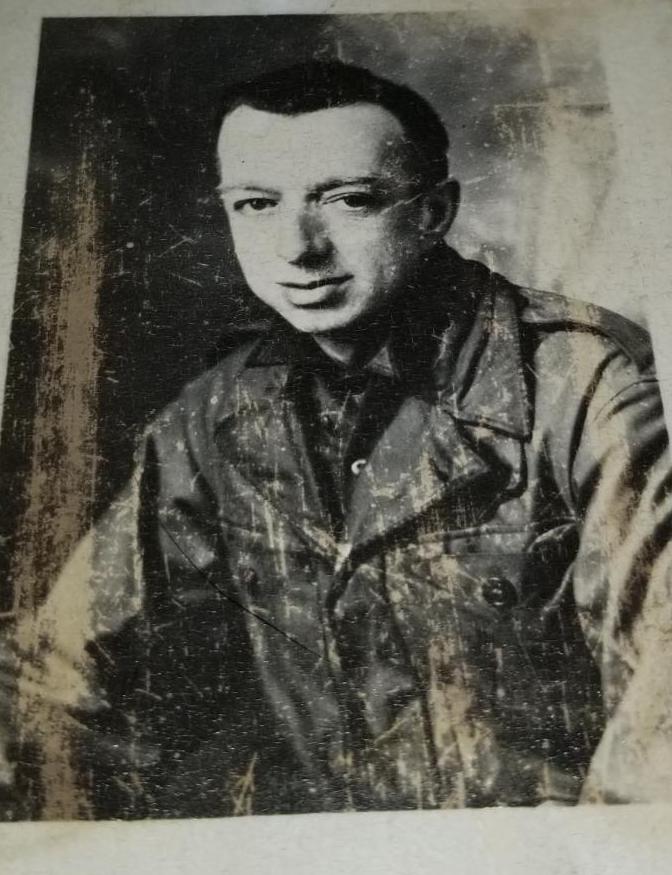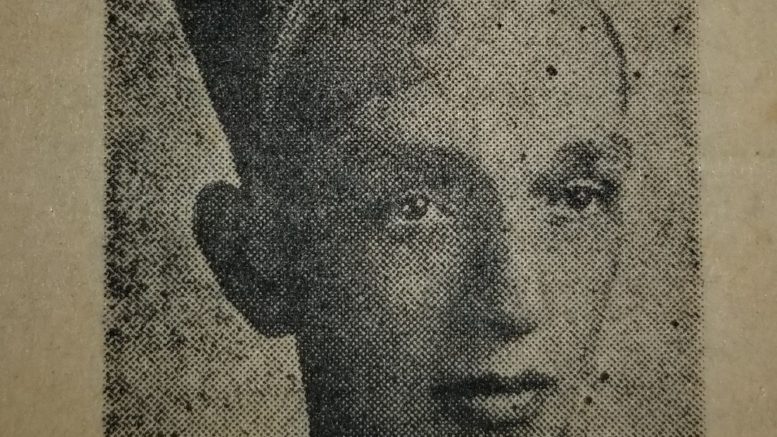I take the opportunity on the 75th anniversary of the D-Day Invasion into Normandy France to share our family story of two brothers, our family War Heroes. I tell the story as I have been told by those that survive; my father William E. Jordan and his nephew Gerald Turner are both now deceased.
It was sometime in the early 1940s that two brothers, Bill and Howard, enlisted in the U.S. Army and answered a call within themselves as their civic duty to their country. Bill was in his mid-30s, single, an avid baseball player, who enjoyed each day. Howard was nicknamed Ikie after his middle name Isaac, for his father.

Howard was Bill’s kid brother and best friend. They lost their mother at a young age and simply looked out for each other. Howard had married and had a newborn infant daughter. His wife was a feisty gal, certain to take care of things on the home front.
Bill and Howard enlisted on what they believed was a buddy system where they could be together and continue to look out for each other. The war years changed that, and they were separated. Contact only through long awaited letters gave the only indication where each other might be. Bill was shipped to England not knowing the whereabouts of his kid brother.
The night before the invasion into Normandy, Bill went to a pub. As he stood at the end of the bar in the crowded smoke-filled pub, he looked at the far end of the bar and through the smoke saw a man who looked exactly like his brother Howard. He made his way through the crowded bar to tell the man how much he looked like his brother, only to find it was his brother. They shared three hours of reminiscing and strengthening each other for what might lie ahead. The next day they were shipped with thousands of others to the biggest and bloodiest battle of World War II, the D-Day Invasion.
Bill was to enter on the shores of Omaha Beach, which would prove to be the bloodiest battle in the invasion. He had few thoughts of surviving, as the front of the Higgins boat dropped-down into the water for the GIs to be greeted by the horrors of war. The water was already crimson red with the blood of the first four waves of GIs being killed as they clambered for the beach.
As Bill reached the beach he clambered to safety behind a large cement barricade. His training and sheer desire to live obviously helped him to endure through enemy lines and on into Europe. That part of the story was either not remembered from the horrific event or remains unspoken, but he survived the fifth wave at Omaha Beach.
Bill was in the Signal Corps, stringing communication wire throughout Europe. Howard was in the infantry and continued to fight for the liberation of France and all of Europe. Contact between the two brothers was lost and only occasionally would letters from home reach the brave men and women fighting the tyrannies of war and the Hitler regime.
Two months after the D-Day invasion on Aug. 7, 1944, Pfc. Howard Jordan was on reconnaissance duty when he came across a wounded G.I. He came to the wounded man’s aid, slinging his arm around his shoulder, and together made it to a first aid station. It was soon realized in the struggle to get the man immediate medical attention a rifle was left behind. Howard went back to retrieve the weapon so there would be no disciplinary action. Enemy soldiers ambushed Howard on his return and he died, a casualty of war, and an American hero.
Family had assumed for years that Howard had forgotten his own gun in the chaos and went back to retrieve it. However, his nephew discovered through a man involved in the incident at the first aid station that it was the wounded man’s gun that Howard went to retrieve to help his wounded fellow G.I.
On that day, Aug. 7, 1944, Howard’s wife, Helen, was hanging laundry on the clothesline in the side yard. Howard and Helen had a beautiful baby girl that Howard had seen one time after boot camp and before being shipped to Europe. She was three months old.
As Helen wrestled with the wet clothing and her chores, a bird kept flying around her head. It was so persistent that she went into the house to get a broom to drive it away. The bird followed her to the door and went to the adjacent window and was pecking at the serviceman’s star in the window. The homes of each service man placed a star in the window designating it was the home of a service man, and the color of the star designated what theater of war their soldier was involved in combat.
Helen drove the bird away. A few days later Helen received word of the death of Howard. The incident with the bird was on the same day Howard died. Throughout history, birds have been believed to be messengers of the spirit.
Bill survived the war. He was mustering out of the Army at Fort Dix New Jersey, anxious to get a bus home as he knew his father was gravely ill from previous letters gathered through the months. He failed to hear an announcement for him to come to the offices for an important message. He took what seemed to be an endless bus trip home, arriving in the small town of Candor, N.Y., greeted by the news that his father’s funeral would be in the next hour.
The ravages of war took its toll on Bill. He discovered that his brother intuitively knew he would not return from the war. Howard had given his fishing wader boots to a dear friend telling him he would never use them again.
The D-Day invasion changed our world and the entire world. The scars inflicted in war remain today for the generations that followed. Our father and our Uncle are remembered as casualties of war, but with great pride and love. The sacrifices on the battlefront in the war effort at home by those left behind made a great generation for a grateful nation and for the generations yet to come.
We, the children, grandchildren and great-grandchildren cherish their loyalty our loved ones offered to maintain our freedoms. Howard’s name is engraved on the World War II monument at the Tioga County Courthouse. As we gaze upon his name we rest assured that he died – so we might live.



Loved hearing this story retold. As a family member, Howard and Bill were my mother’s Uncles and Phillip Jordan a first cousin of my mother. This is more specific than any previous story that I had heard before. That generation of Americans deserves to be called “ America’s Greatest Generation”. Their selfless commitment to Country and family set a standard for future Americans to be measured against. Hopefully we measure up.